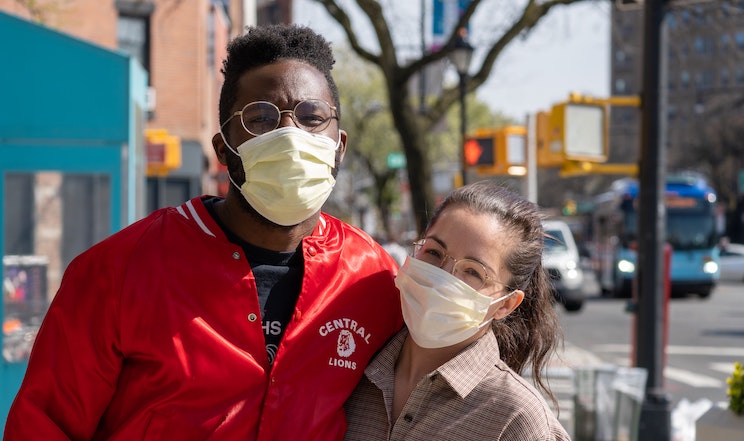
Although it seems one of the most irrelevant problems of this pandemic, many eyeglass users have found these days that when they wear a mask, whether hygienic or surgical, their glasses completely fog up, stopping them from seeing properly. This happens when warm breathing comes out of the top of the mask and goes onto the cooler surface of the glasses.
Even though it is very annoying, it is important to keep the mask on, not to take it off or lower it under the nose. Instead, we recommend following these tips for wearing a mask and glasses without fogging up:
If the mask does not fit properly on the face, warm breath is more likely to escape and fog the glasses. When you put on your mask, it is important to make sure you tighten the top piece of wire properly to fit the shape of your nose. If the mask allows, the sides should also be secured to achieve a good fit. If necessary, you can use medical or sports tape to close the space between the nose-bridge and the top of the mask.
Before putting on glasses it may be helpful to wash them carefully with soap and water. Another alternative is anti-fog products, which come in the form of sprays, wipes or chamois and can be found in any optician’s shop. These products help prevent water drops that can fog the glasses.
Bringing your glasses down a little over your nose will facilitate air circulation and prevent your breathing from fogging them.
Try putting the mask on your nose and then put the glasses on top. This will block air from escaping and prevent fogging. Make sure the mask fits properly over your face and that your nose and mouth are completely protected.
Contact us or request an appointment with our medical team.